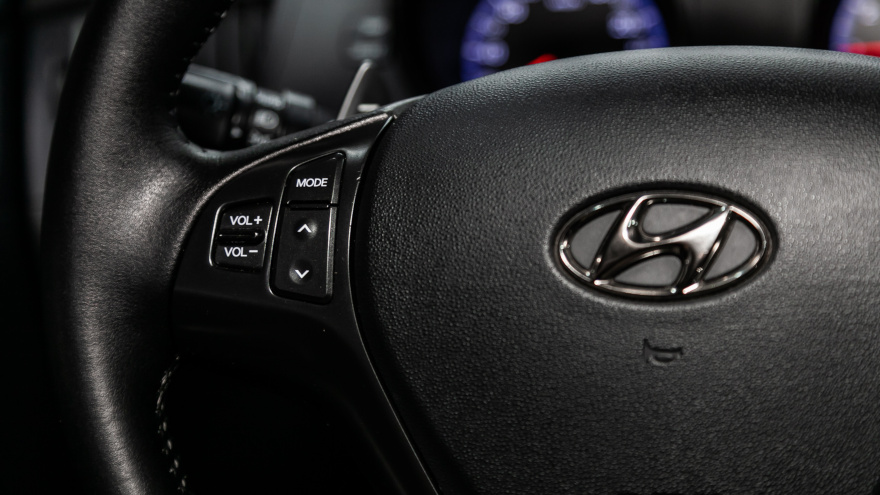New-vehicle quality flat, but some brands stand out

Editorial credit: Everyonephoto Studio / Shutterstock.com
By subscribing, you agree to receive communications from Auto Remarketing and our partners in accordance with our Privacy Policy. We may share your information with select partners and sponsors who may contact you about their products and services. You may unsubscribe at any time.
COSTA MESA, Calif. –
Paint imperfections. Brake and suspension noises. Engines not starting. The “check engine” light coming on early in the ownership experience.
Those are some of the reasons that new-vehicle quality is flat for 2019 compared to 2018, according to the J.D. Power 2019 Initial Quality Study.
That was just one finding of the study, which showed that 2019 is the first year without new vehicle quality improvement since 2014.
The 2019 U.S. Initial Quality Study, based on responses from 76,256 purchasers and lessees of new 2019 model-year vehicles, surveyed participants after 90 days of ownership.
But the study showed additional trends, including the fact that Korean brands continue to widen their gap between other brands. Genesis, Kia and Hyundai were the three highest ranking brands, and those are all from Korean manufacturer Hyundai Motor Group.
The study showed that 16 of 18 Hyundai Motor Group models rank in the top three in their respective segments. One reason? Infotainment and electric components. Vehicles from Hyundai Motor Group perform well in those areas, according to J.D. Power.
Subscribe to Auto Remarketing to stay informed and stay ahead.
By subscribing, you agree to receive communications from Auto Remarketing and our partners in accordance with our Privacy Policy. We may share your information with select partners and sponsors who may contact you about their products and services. You may unsubscribe at any time.
The study measures initial quality by the number of problems experienced per 100 vehicles (the study refers to that measurement as PP100), during the first 90 days of ownership. A lower score reflects higher quality. Only 13 brands improved in this year’s study, and 18 got worse. At 93 PP100, the industry average remained unchanged.
The study showed domestic brands scoring above that industry average, with Ford (83 PP100), Lincoln (84 PP100), Chevrolet (85 PP100), Dodge (90 PP100) and Buick (92 PP100) beating that benchmark.
European brands, however, fell below the mark, with all 10 European marques scoring below average. Infotainment and other electronics were the largest gaps for the European vehicles.
Some models looked good, according to the study. For the second consecutive year, Porsche 911 scored 58 PP100, which was the best score of any model:
Also, although infotainment is a problematic area for vehicle owners, those owners are seeing fewer of those problems. It is the most improved category from 2018, with voice recognition and Bluetooth showing fewer problems.
Owners are also seeing more problems with driver assistance systems, as advanced driver assistance systems become more widespread and increasingly complex. The 6.1 PP100 average for premium brands is up from 5.0 last year. The mass market brand average is 3.5 PP100.
New and redesigned vehicles still show more problems than carryover vehicles, with vehicles that were launched in 2019 having an average problem level of 103 PP100. J.D. Power says that although that equals the best score ever, it still falls well below carryover model scores, which show a 91 PP100 average problem level.
For the second year in a row, the three Korean brands are at the top of the overall ranking.
Regarding the highest-ranking brands and models, Genesis scored just 63 PP100, which is the highest overall initial quality. Second in that ranking was Kia (70 PP100), which for the fifth year in a row, was the highest-ranked mass-market brand.
Hyundai (71 PP100) was third.
With Ford (83 PP100) ranking fourth and Lincoln (84 PP100) ranking fifth, that makes the first time both Ford Motor Company brands placed in the top five in the same year.
The most improved brand? Land Rover. Owners of that brand reported 37 PP100 fewer problems than in 2018. Also, Jaguar (18 PP100 improvement), Dodge and Volvo (each with 8 PP100 improvement) showed strong improvement, with Dodge ranking in the study for the first time.
Hyundai was also the parent corporation receiving the most model-level awards with six. General Motors was next with five, BMW AG with three, and Ford Motor Co. and Nissan Motor Co. Ltd. with two apiece.
Helping Hyundai with that top achievement were six of its models that ranked highest in their respective segments. Those were the Genesis G70; Hyundai Santa Fe; Kia Forte; Kia Rio; Kia Sedona; and Kia Sportage.
Also, models for several brands that ranked highest in their segments include
General Motors: Cadillac Escalade; Chevrolet Equinox; Chevrolet Malibu; Chevrolet Silverado HD; and Chevrolet Tahoe.
BMW AG: BMW 2 Series; BMW X4; and MINI Cooper.
Ford Motor Co.: Ford Fusion and Ford Ranger.
Nissan Motor Co. Ltd.: Nissan Maxima and Nissan Titan.
Additional models ranking highest in their respective segments: Dodge Challenger, Lexus RX and Mercedes-Benz CLS.
The study also offered plant quality awards, with Toyota Motor Corp.’s Cambridge North (Canada) plant, receiving the Platinum Plant Quality Award for producing vehicles with the fewest defects or malfunctions. That plant produced the Toyota Corolla. J.D. Power bases its plant quality awards solely on defects and malfunctions, and exclude design-related problems.
Also in the area of plant quality, Toyota Motor Corp.’s Tsutsumi 1 (Japan) plant, and BMW AG’s Regensburg (Germany) plant, each earned the Gold Plant Quality Award for the Asia Pacific and Europe/Africa regions, respectively. The Toyota plant produces the Toyota Prius and the BMW plant produces the BMW 4 Series, X1 and X2
The study was fielded from February through May.


